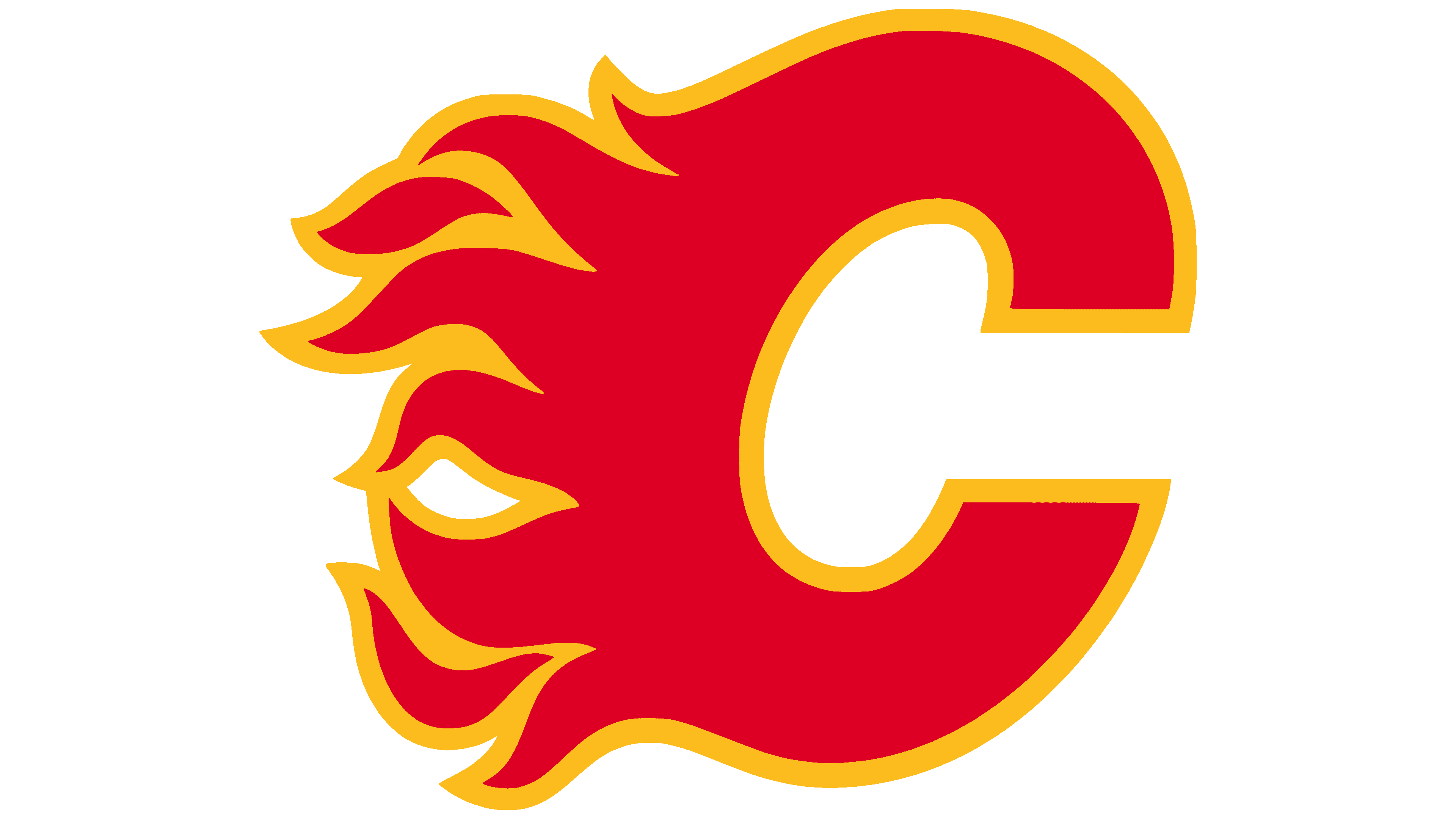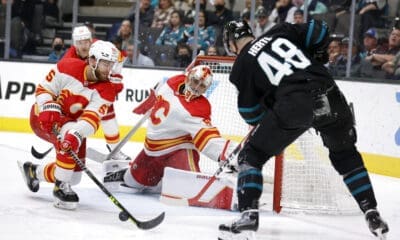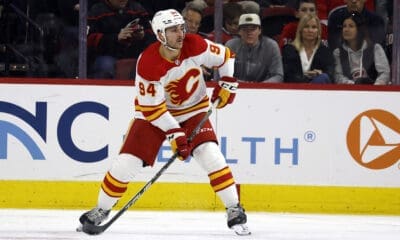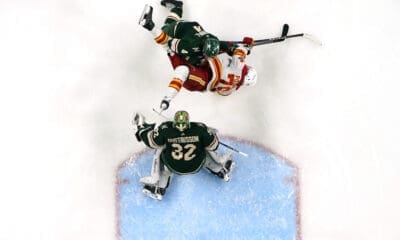Calgary Flames
The Best Team To Never Win It: 2006 Flames
Grinding, Playoff-Built Team Faltered In First Chance Since ‘04 Final

We’re living in a world of “what if” right now, and that’s basically what all our sports have boiled down to. And while we can ponder the present and the future, of our sports, the only thing that can give us an concrete numbers and events to ponder is the past. We here at M&G are going to take a look back, and answer the question “Which Flames team was the best enver to win the Stanley Cup?”. Locking down only one championship in 40 seasons since relocating to Calgary, there was plenty of Flames choices but only a handful of squads could be truly considered contenders. While last season’s 107 division winning bunch might be the first to spring to mind, let’s take a look back at the franchise’s last prior division winner from 2005-06 and see how they measure up.
Regular Season Record: 103 points (46-25-11), Northwest Division Champions
Playoffs: Eliminated in seven games by Mighty Ducks of Anaheim, Western Conference Quarter Final
Notable Remainders from Previous Season: Jarome Iginla, Miikka Kiprusoff, Robyn Regehr, Chuck Kobasew, Rhett Warrener, Andrew Ference, Jordan Leopold, Chris Simon, Sean Donovan, Stephane Yelle, Steve Reinprecht
Notable Subtractions: Steve Montador, Toni Lydman, Mike Commodore, Ville Nieminen, Martin Gelinas, Craig Conroy
Notable Additions: Kristian Huselius, Tony Amonte, Darren McCarty, Roman Hamrlik, Daymond Langkow, Dion Phaneuf
Regular Season:
With the 2005 season lost to the ether of a lockout, there would be a salivating wait after the fervor of the 2004 Cup Finals run before the C of Red could rise again. While major names from the magic run like Conroy and Gelinas would move along for greener pastures, Coach-GM Darryl Sutter brought in some new faces with nothing but a playoff run on his mind. Scoring forwards Kristian Huselius and Daymond Langkow were in, along with Chicago Blackhawks franchise star Tony Amonte. Legendary grinders Darren McCarty and Roman Hamrlik would provide new sandpaper, and a hard-hitting high-scoring rookie from the Red Deer Rebels named Dion Phaneuf would light up the blue line.
However, two familiar faces would do the most to carry the squad along. Captain Jarome Iginla was back to point the way offensively, notching 35 goals (17 on the powerplay) and finishing for the team scoring lead by eight points over Daymond Langkow, 67-59. However, it was a down year for #12 as that didn’t even put him into the Top 50 for leaguewide points at season’s end. The big story was in the blue paint, as Miikka Kiprusoff laid down the best season he’d ever play wearing black and red. Racking up 42 of the teams 46 wins on the season, he surpassed Mike Vernon’s franchise record when he recorded his 40th win of the season against the Minnesota Wild on April 8th. Kipper also piled up a team-record 10 shutouts along the way, as well as a career high .923 save percentage and 2.07 goals against average that he only ever bested once in his career. When the hardware was finally handed out, #34 finished as a Hart Trophy finalist, and took home the Vezina and William Jennings trophies, and was voted first team all-star.
Despite being a team that didn’t have high-powered offense, the Flames managed to grind their way to a Northwest Division championship. The team finished eight points ahead of the 2nd and 3rd place Avalanche and Oilers, locking down home ice advantage for the first round. Having never lost more than three games in a row all year, and knocking out an eight game win streak in November, the team was consistent, resilient, and showed an ability to rebound quickly from adversity. On the back of Kiprusoff’s stellar netminding, and aided by Darryl Sutter’s textbook solid defensive structure, Calgary finished first in league goals allowed with an even 200. However, they were 28th in goals for, having scored only 18 more than they allowed at 218. This was a team that was designed to win tight one-goal games, knowing it would bode well for intense, tight-checking, low-scoring playoff scenarios. In fact, over half of their wins came in one-goal margins, with 25 out of 46 victories being decided in that fashion. In a tough slip of history, the Flames would draw the-then Mighty Ducks of Anaheim in round one, a matchup that would unfortunately haunt the franchise not only in 2006, but in years to come.
Playoffs:
The Ducks came in finishing five points back of Calgary, with 98 points and third place in the Pacific Division. In a 3 seed versus 6 seed matchup, the gritty Flames seemed poised to move on to the second round handily. After a 33-save Kiprusoff performance capped by a Darren McCarty OT winner, Calgary took game one and the momentum with a 2-1 W. The two teams would alternate wins, as Anaheim took Game Two 4-3, and the Flames would take Game Three 5-2 after scoring three powerplay goals. That third game victory would be the last win in Anaheim for the franchise for 22 consecutive regular-season games and seven straight Playoff games at home. Game 3 was also the only one of the series decided by more than one goal, as the low-scoring trench warfare style the Flames employed actually backfired. A 3-2 win in Game Five would be the squad’s only other victory, as they would drop games four and six 3-2 (OT) and 2-1, struggling to win the slim-margin victories they’d mastered all year. With their hated rival Edmonton Oilers upsetting the mighty 124-point Detroit Red Wings by May 1st, Game Seven in Calgary against Anaheim on May 3rd presented high drama, and the potential for the first Battle of Alberta playoff series since 1991. However, the home side came out flat, outshot 32-22 and shut out 3-0 by a young Ilya Bryzgalov and the Mighty Ducks.
What If?
While the Flames bested the Oilers 5-3 in the regular season series, they were on a Cinderella playoff run in 2006, eventually making their way to the Stanley Cup Final and losing in seven games to the Carolina Hurricanes. However, they did so as the eighth seed out of the west, and the only two higher seeds than Calgary (Detroit and Dallas) were also upset in the first round. So the field of competition through the Western Conference wasn’t exactly stiff, and if the Flames could’ve replicated their regular season effort in the second round against Edmonton they might’ve had a clear march to back-to-back Stanley Cup Finals. Instead, the Flames set on a path of pseudo-rebuilds and re-tools, and although they made the playoffs three more straight seasons, they would never escape the first round.
Are the 2006 Calgary Flames the best team in franchise history to never lift Lord Stanley’s chalice? It’s certainly up for debate, and these days we’ve got plenty of time to decide.
by MilhouseFirehouse









